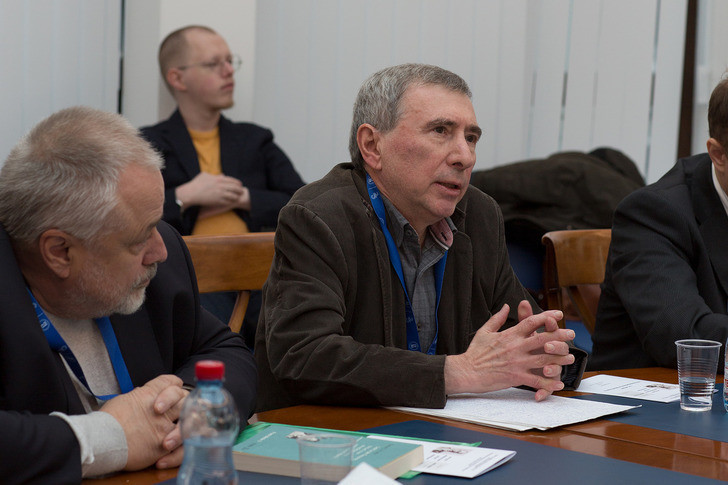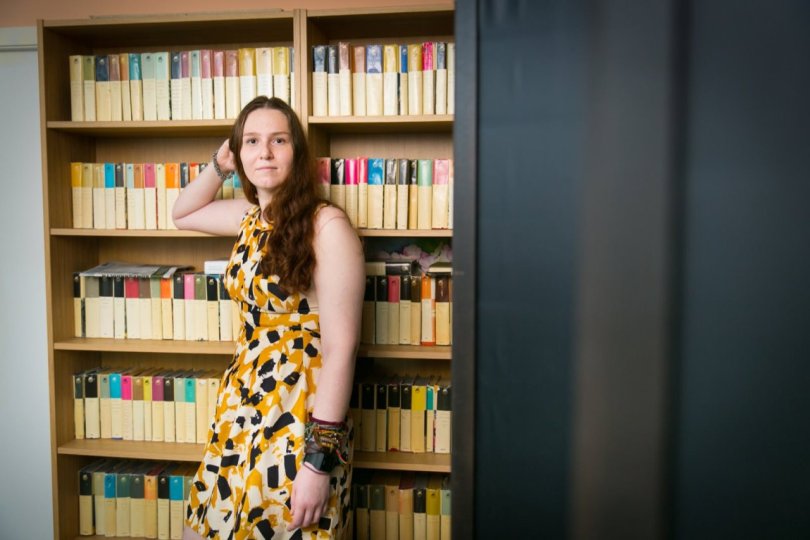HSE Academic Is Reviving the Spirit of Socrates
HSE Assistant Professor of Philosophy, Aaron James Wendland, recently launched a popular philosophy column in a prominent British Magazine: The New Statesman. In this interview, we ask Aaron about his research interests, his experience at HSE, and the rationale behind his new column on popular philosophy.

Spiritual Importance of Russian Culture for European History
International Laboratory for the Study of Russian and European Intellectual Dialogue was established at HSE in 2017 with the purpose of showcasing the Russian philosophy, literature and art, and focusing on its universal spiritual significance for the fate of Europe and Russia. HSE News Service has talked to Leonid Luks, Academic Supervisor of the laboratory, about the place of Russian culture in the world and the research the laboratory is undertaking.
Living and Working in Multicultural Moscow
In 2017, Sean Winkler joined the School of Philosophy as a research fellow. Originally from Chino Hills, California, he holds an undergraduate and Master’s degree in philosophy from Loyola Marymount University (Los Angeles, California), as well as a Master’s degree and PhD from KU Leuven (Leuven, Belgium), where his dissertation focused on the work of 17th century philosopher Baruch Spinoza. In his role as a postdoctoral research fellow for the School of Philosophy at HSE, Winkler specializes in the study of early modern philosophy. Besides early modern thought, his interests span from 20th-century French continental philosophy, to critical theory, to Daoism and to philosophy of science.
Sean Winkler – Looking Forward to New Perspectives on Philosophy
On September 1, 2017, Sean Winkler joined the School of Philosophy as a research fellow for one year. Originally from Chino Hills, California, he holds an undergraduate and Master’s degree in philosophy from Loyola Marymount University (Los Angeles, California), as well as a Master’s degree and PhD from KU Leuven (Leuven, Belgium).
Brian McLoone – Exploring the Philosophy of Biology
It was a class in cultural evolution during his second year as an undergraduate at Tufts University that caused Brian McLoone to become hooked on philosophy. A native of Phoenix, Arizona, he went on to complete his PhD in philosophy of biology at the University of Wisconsin–Madison in 2016. He will be joining the HSE School of Philosophy as an Assistant Professor in early September.

'We Know Our Clients as Well as We Know Ourselves'
In the latest edition of Success Builder, HSE graduate and the founder of the anti-café Kocherga, Pion Gaibaryan, talks about how to build an ideological business and create a comfortable environment for ‘nerds.’ She also discusses why philosophy cannot be just a kitchen table conversation and how reading Kurt Gödel under the sun can treat depression.
Russian and Italian Intellectuals Speak a Common Language
In late May Moscow hosted a Russian-Italian research conference marking the anniversary of the birth of Italian philosopher Benedetto Croce. The conference entitled 'The Legacy of Benedetto Croce in the 21st Century' was organized by and held at the HSE's Humanities Faculty in conjunction with the Italian Cultural Institute in Moscow.
'It Would Be Wonderful If Some of the Leading Historians of Philosophy of the Next Generation Were Russians’
Professor Peter Anstey from the University of Sydney held a series of seminars on research methods in the humanities and early modern philosophy at HSE Moscow last week. The seminars were connected to his project ‘The Nature and Status of Principles in Early Modern Philosophy’. How have the studies of philosophy evolved? What is the role of philosophy of the modern world? How can Russian students become involved in global research projects? These were some of the issues Peter Anstey talked about with HSE News Service.
Science and Philosophy in Early Modern Europe
On Friday 29th January Andrea Strazzoni, a PhD candidate on Early Modern Philosophy at Erasmus University, Rotterdam and HSE Visiting Fellow gave a seminar at HSE on The Foundation of Science in Early Modern Philosophy: Mental Faculties, Physical Principles and Evident Knowledge.
Building the Largest Database on Sustainable Development and Conflict Transformation to Make the World More Peaceful and Just
On 20th May 2015 Dr Michael Minch, Professor of Philosophy at Utah Valley University, gave an open lecture at HSE Nizhny Novgorod. A specialist with a unique combination of interests ranging from theological ethics to politics, Professor Minch brings together what at first glance appear to be irreconcilable — politics and ethics.


Deadline for applications to present academic reports - January 20, 2025